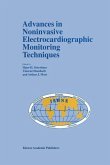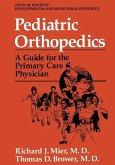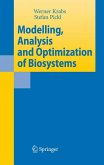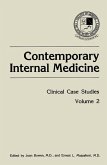Homer R. Warner, Dean K. Sorenson, Omar Bouhaddou
Knowledge Engineering in Health Informatics (eBook, PDF)
112,95 €
112,95 €
inkl. MwSt.
Sofort per Download lieferbar

56 °P sammeln
112,95 €
Als Download kaufen

112,95 €
inkl. MwSt.
Sofort per Download lieferbar

56 °P sammeln
Jetzt verschenken
Alle Infos zum eBook verschenken
112,95 €
inkl. MwSt.
Sofort per Download lieferbar
Alle Infos zum eBook verschenken

56 °P sammeln
Homer R. Warner, Dean K. Sorenson, Omar Bouhaddou
Knowledge Engineering in Health Informatics (eBook, PDF)
- Format: PDF
- Merkliste
- Auf die Merkliste
- Bewerten Bewerten
- Teilen
- Produkt teilen
- Produkterinnerung
- Produkterinnerung

Bitte loggen Sie sich zunächst in Ihr Kundenkonto ein oder registrieren Sie sich bei
bücher.de, um das eBook-Abo tolino select nutzen zu können.
Hier können Sie sich einloggen
Hier können Sie sich einloggen
Sie sind bereits eingeloggt. Klicken Sie auf 2. tolino select Abo, um fortzufahren.

Bitte loggen Sie sich zunächst in Ihr Kundenkonto ein oder registrieren Sie sich bei bücher.de, um das eBook-Abo tolino select nutzen zu können.
The "information explosion" has made it impossible for physicians to consistently make optimal decisions. Thus, medical expert systems are now available to support physicians in providing the best possible healthcare to every patient. This is a guide to such systems, presenting the core material for courses such as Medical Knowledge Engineering and Expert System Development.
- Geräte: PC
- ohne Kopierschutz
- eBook Hilfe
- Größe: 19.63MB
Andere Kunden interessierten sich auch für
![Advances in Noninvasive Electrocardiographic Monitoring Techniques (eBook, PDF) Advances in Noninvasive Electrocardiographic Monitoring Techniques (eBook, PDF)]() Advances in Noninvasive Electrocardiographic Monitoring Techniques (eBook, PDF)160,95 €
Advances in Noninvasive Electrocardiographic Monitoring Techniques (eBook, PDF)160,95 €![Home Long-Term Oxygen Treatment in Italy (eBook, PDF) Home Long-Term Oxygen Treatment in Italy (eBook, PDF)]() Home Long-Term Oxygen Treatment in Italy (eBook, PDF)40,95 €
Home Long-Term Oxygen Treatment in Italy (eBook, PDF)40,95 €![Asthma: Epidemiology, Anti-Inflammatory Therapy and Future Trends (eBook, PDF) Asthma: Epidemiology, Anti-Inflammatory Therapy and Future Trends (eBook, PDF)]() Asthma: Epidemiology, Anti-Inflammatory Therapy and Future Trends (eBook, PDF)40,95 €
Asthma: Epidemiology, Anti-Inflammatory Therapy and Future Trends (eBook, PDF)40,95 €![The War on Cancer (eBook, PDF) The War on Cancer (eBook, PDF)]() Guy B. FaguetThe War on Cancer (eBook, PDF)112,95 €
Guy B. FaguetThe War on Cancer (eBook, PDF)112,95 €![Pediatric Orthopedics (eBook, PDF) Pediatric Orthopedics (eBook, PDF)]() Richard J. MierPediatric Orthopedics (eBook, PDF)40,95 €
Richard J. MierPediatric Orthopedics (eBook, PDF)40,95 €![Modelling, Analysis and Optimization of Biosystems (eBook, PDF) Modelling, Analysis and Optimization of Biosystems (eBook, PDF)]() Werner KrabsModelling, Analysis and Optimization of Biosystems (eBook, PDF)112,95 €
Werner KrabsModelling, Analysis and Optimization of Biosystems (eBook, PDF)112,95 €![Contemporary Internal Medicine (eBook, PDF) Contemporary Internal Medicine (eBook, PDF)]() Contemporary Internal Medicine (eBook, PDF)40,95 €
Contemporary Internal Medicine (eBook, PDF)40,95 €-
-
-
The "information explosion" has made it impossible for physicians to consistently make optimal decisions. Thus, medical expert systems are now available to support physicians in providing the best possible healthcare to every patient. This is a guide to such systems, presenting the core material for courses such as Medical Knowledge Engineering and Expert System Development.
Dieser Download kann aus rechtlichen Gründen nur mit Rechnungsadresse in A, B, BG, CY, CZ, D, DK, EW, E, FIN, F, GR, HR, H, IRL, I, LT, L, LR, M, NL, PL, P, R, S, SLO, SK ausgeliefert werden.
Produktdetails
- Produktdetails
- Verlag: Springer US
- Seitenzahl: 265
- Erscheinungstermin: 6. Dezember 2012
- Englisch
- ISBN-13: 9781461218227
- Artikelnr.: 44063946
- Verlag: Springer US
- Seitenzahl: 265
- Erscheinungstermin: 6. Dezember 2012
- Englisch
- ISBN-13: 9781461218227
- Artikelnr.: 44063946
- Herstellerkennzeichnung Die Herstellerinformationen sind derzeit nicht verfügbar.
1 Background and Legacy.- Overview.- Knowledge Representation and Computation Methodologies.- 2 The Expert System Model.- to Modeling.- Choosing a System to Model.- Choosing a Model.- 3 Iliad: The Model Used for This Text.- The Frame Concept.- The Probabilistic Model: Dealing with Uncertainty.- Probabilistic Information.- Heuristics That Improve the Model.- 4 The Data Dictionary: Limiting the Domain of the Model.- Organization of the Dictionary.- Context Versus Concept.- Hierarchical Relationships.- Granularity of the Dictionary.- Modifying the Dictionary.- Knowledge Contained in the Dictionary.- Inferencing from the Hierarchy.- Word Relations.- Data Relations.- 5 The Knowledge Engineering Process.- How to Structure/Model the Knowledge.- The Overall Process.- Knowledge Sources: Advantages and Limitations of Each.- Which Findings to Include in a Frame.- Probabilistic and Deterministic Logic.- Reasons to Cluster.- Types of Clusters.- Frames That Return a Value.- Estimating Probabilities.- Testing Frames in Isolation.- Sources of Error.- Tools to Facilitate the Knowledge Engineering Process.- Combining Frames into a Working System.- 6 Evaluation of the Model.- Testing and Refining the Compiled Knowledge.- Appropriateness of Decisions Based on Data Entered by Experts.- Testing with Data Newly Entered from Patient Charts.- Testing with Cases Stored Earlier.- Modifying Source Frames As Required: The Iterative Process.- 7 Applications of the Model.- Modes of Use.- The User Interface.- Minimal Diagnosis.- Bayes Calculator.- Interfaces to Other Knowledge.- Compromises.- 8 Lessons Learned.- Teaching Medical Clerks, Physician Assistants, and Other Trainees.- As a Tool for Preauthorization.- As a Screening Tool for Quality Improvement.- Commercial Users of Iliad.- 9 Knowledge Engineering Tools.- Knowledge Acquisition.- Structuring and Coding the Knowledge.- Testing the Knowledge Base.- Summary.- 10 Example Knowledge Bases.- The Knowledge Engineering Class.- Medical and Pediatric HouseCall.- Symptom Analysis.- Deriving HouseCall from Iliad.- Knowledge Engineering for HouseCall.- 11 Future Challenges.- Links to Patient Data: Client Server/Version of Iliad.- Future Directions.- References.- Appendices.- 1 Example Hierarchies of Top-Level Diseases (Final Diagnoses) in Various Medical Specialties.- 2 Approximate Estimated Prevalences for Selected Top-Level Diseases in a Family Practice Setting, Categorized by Specialty.- 3 Using the Iliad KE Tool.- 4 Some Example "Domain-Specific" Symptom Lists.- 5 Example Data Relations.- 6 Example Word Relations.
1 Background and Legacy.- Overview.- Knowledge Representation and Computation Methodologies.- 2 The Expert System Model.- to Modeling.- Choosing a System to Model.- Choosing a Model.- 3 Iliad: The Model Used for This Text.- The Frame Concept.- The Probabilistic Model: Dealing with Uncertainty.- Probabilistic Information.- Heuristics That Improve the Model.- 4 The Data Dictionary: Limiting the Domain of the Model.- Organization of the Dictionary.- Context Versus Concept.- Hierarchical Relationships.- Granularity of the Dictionary.- Modifying the Dictionary.- Knowledge Contained in the Dictionary.- Inferencing from the Hierarchy.- Word Relations.- Data Relations.- 5 The Knowledge Engineering Process.- How to Structure/Model the Knowledge.- The Overall Process.- Knowledge Sources: Advantages and Limitations of Each.- Which Findings to Include in a Frame.- Probabilistic and Deterministic Logic.- Reasons to Cluster.- Types of Clusters.- Frames That Return a Value.- Estimating Probabilities.- Testing Frames in Isolation.- Sources of Error.- Tools to Facilitate the Knowledge Engineering Process.- Combining Frames into a Working System.- 6 Evaluation of the Model.- Testing and Refining the Compiled Knowledge.- Appropriateness of Decisions Based on Data Entered by Experts.- Testing with Data Newly Entered from Patient Charts.- Testing with Cases Stored Earlier.- Modifying Source Frames As Required: The Iterative Process.- 7 Applications of the Model.- Modes of Use.- The User Interface.- Minimal Diagnosis.- Bayes Calculator.- Interfaces to Other Knowledge.- Compromises.- 8 Lessons Learned.- Teaching Medical Clerks, Physician Assistants, and Other Trainees.- As a Tool for Preauthorization.- As a Screening Tool for Quality Improvement.- Commercial Users of Iliad.- 9 Knowledge Engineering Tools.- Knowledge Acquisition.- Structuring and Coding the Knowledge.- Testing the Knowledge Base.- Summary.- 10 Example Knowledge Bases.- The Knowledge Engineering Class.- Medical and Pediatric HouseCall.- Symptom Analysis.- Deriving HouseCall from Iliad.- Knowledge Engineering for HouseCall.- 11 Future Challenges.- Links to Patient Data: Client Server/Version of Iliad.- Future Directions.- References.- Appendices.- 1 Example Hierarchies of Top-Level Diseases (Final Diagnoses) in Various Medical Specialties.- 2 Approximate Estimated Prevalences for Selected Top-Level Diseases in a Family Practice Setting, Categorized by Specialty.- 3 Using the Iliad KE Tool.- 4 Some Example "Domain-Specific" Symptom Lists.- 5 Example Data Relations.- 6 Example Word Relations.







